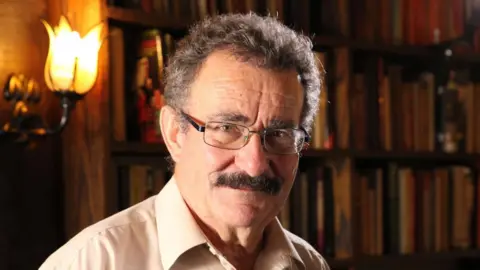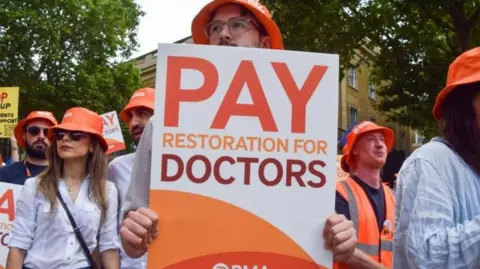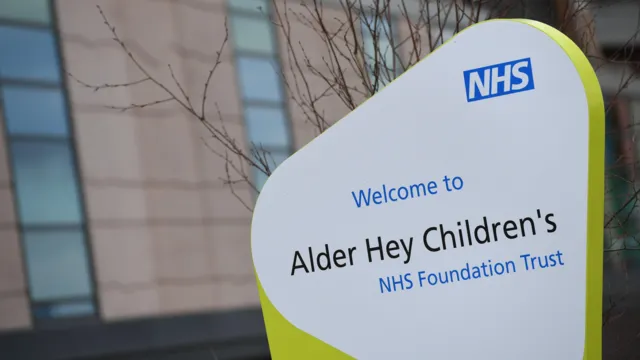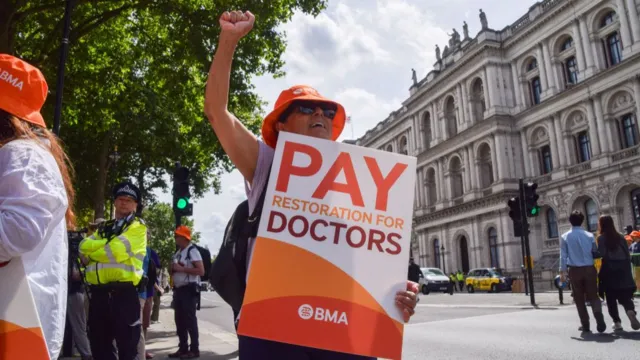Renowned IVF Pioneer and TV Doctor Lord Robert Winston Resigns from BMA Citing Doctor Strikes
TV Doctor and IVF Pioneer Lord Robert Winston Quits BMA Over Doctor Strikes
Lord Robert Winston, a distinguished professor, celebrated TV doctor, and a pivotal figure in the advancement of IVF technology, has announced his resignation from the British Medical Association (BMA). This decision comes as a direct response to the planned strike action by resident doctors, a move Lord Winston believes could erode public trust in the medical profession.
Resident doctors, formerly known as junior doctors, are set to engage in a prolonged walkout, scheduled for five consecutive days from July 25th to July 30th. This industrial action stems from an ongoing pay dispute with the government. Lord Winston, a Labour peer and the familiar face behind the acclaimed BBC series “Child of Our Time,” expressed his deep reservations about the strike during an interview with The Times. He articulated that such actions, while perhaps seen as a necessary last resort by some, carry significant risks for the patient-doctor relationship and the public’s perception of medical ethics.

The BMA recently concluded discussions with the health secretary, reporting that the government has firmly stated its unwillingness to renegotiate pay. This stance has led the BMA to feel that striking is their only remaining option to advocate for their members.
Lord Winston, who has been a dedicated member of the BMA since 1964, shared his personal conflict with the decision to strike. “I’ve paid my membership for a long time. I feel very strongly that this isn’t the time to be striking,” he stated. He highlighted the current economic hardships faced by many, emphasizing that “the country is really struggling in all sorts of ways, people are struggling in all sorts of ways.” His primary concern is that strike action inherently overlooks the immediate needs and vulnerabilities of patients.
“Strike action completely ignores the vulnerability of people in front of you,” Lord Winston added, underscoring the ethical considerations at the heart of his resignation. He believes that doctors have a profound responsibility to their patients, who are often in states of fear and pain, and that this responsibility should be paramount, even amidst disputes.
Resident doctors have recently received a 5.4% pay increase for the current financial year, with payments to commence in August. This follows a cumulative 22% raise over the preceding two years. However, the BMA contends that, when adjusted for inflation, doctors’ wages remain approximately 20% lower than they were in 2008, leading to the ongoing pay dispute.
Health Secretary Wes Streeting has criticized the planned strike, describing it as “unnecessary and unreasonable.” He expressed grave concerns about the potential impact on the National Health Service, which he stated is “hanging by a thread.”
In response to the government’s position, BMA resident doctors committee co-chairs Dr. Melissa Ryan and Dr. Ross Nieuwoudt stated they felt compelled to strike due to the absence of a “credible offer to keep on the path to restore our pay.”
Lord Winston’s intervention comes at a critical time, as both doctors and patient advocacy groups voice serious concerns about the NHS’s struggle to reduce patient waiting times, a key government objective. His experience as a pioneer in IVF and a trusted public figure lends significant weight to his views on the ethical obligations of medical professionals.
“Doctors need to be reminded that every time they have a patient in front of them they have someone who is frightened and in pain. It’s important that doctors consider their own responsibility much more seriously,” he urged.



Post Comment